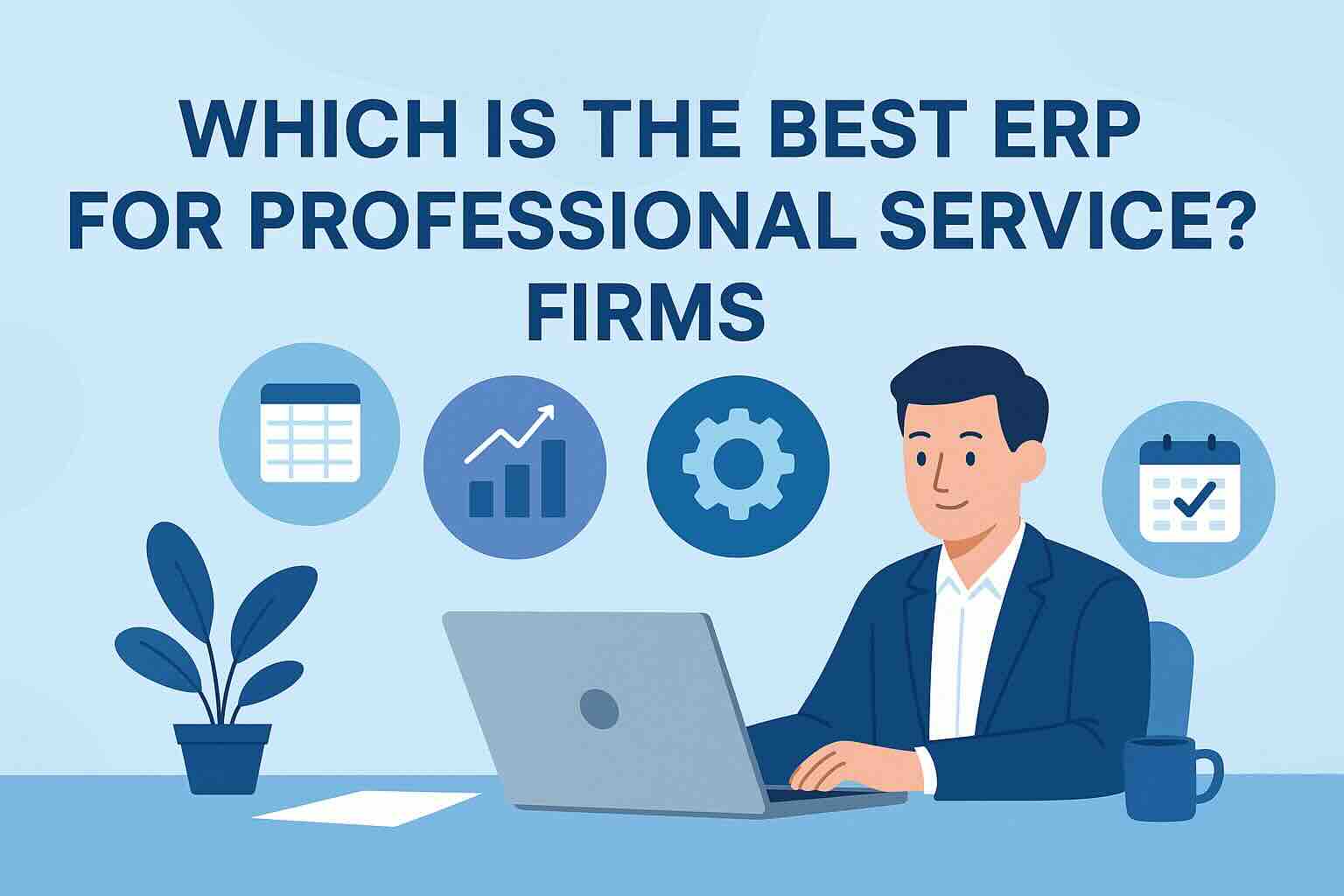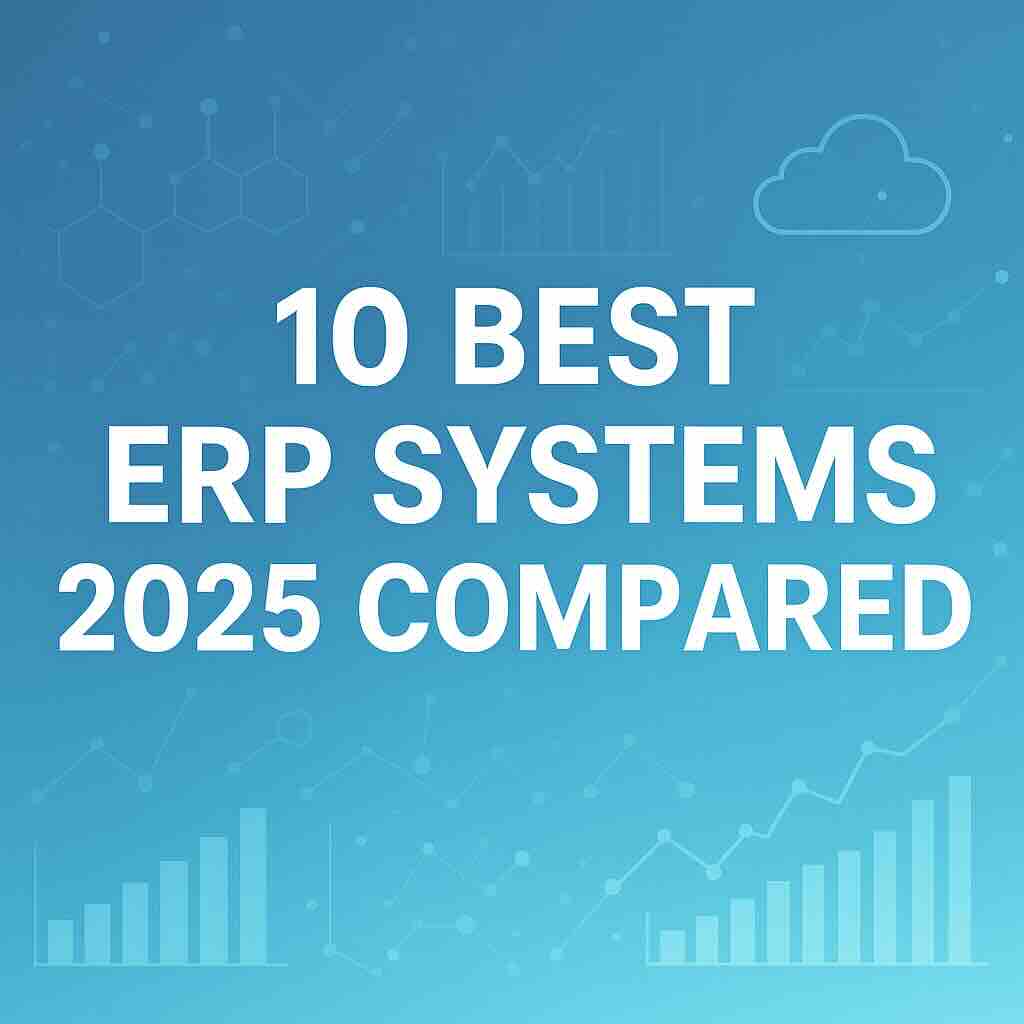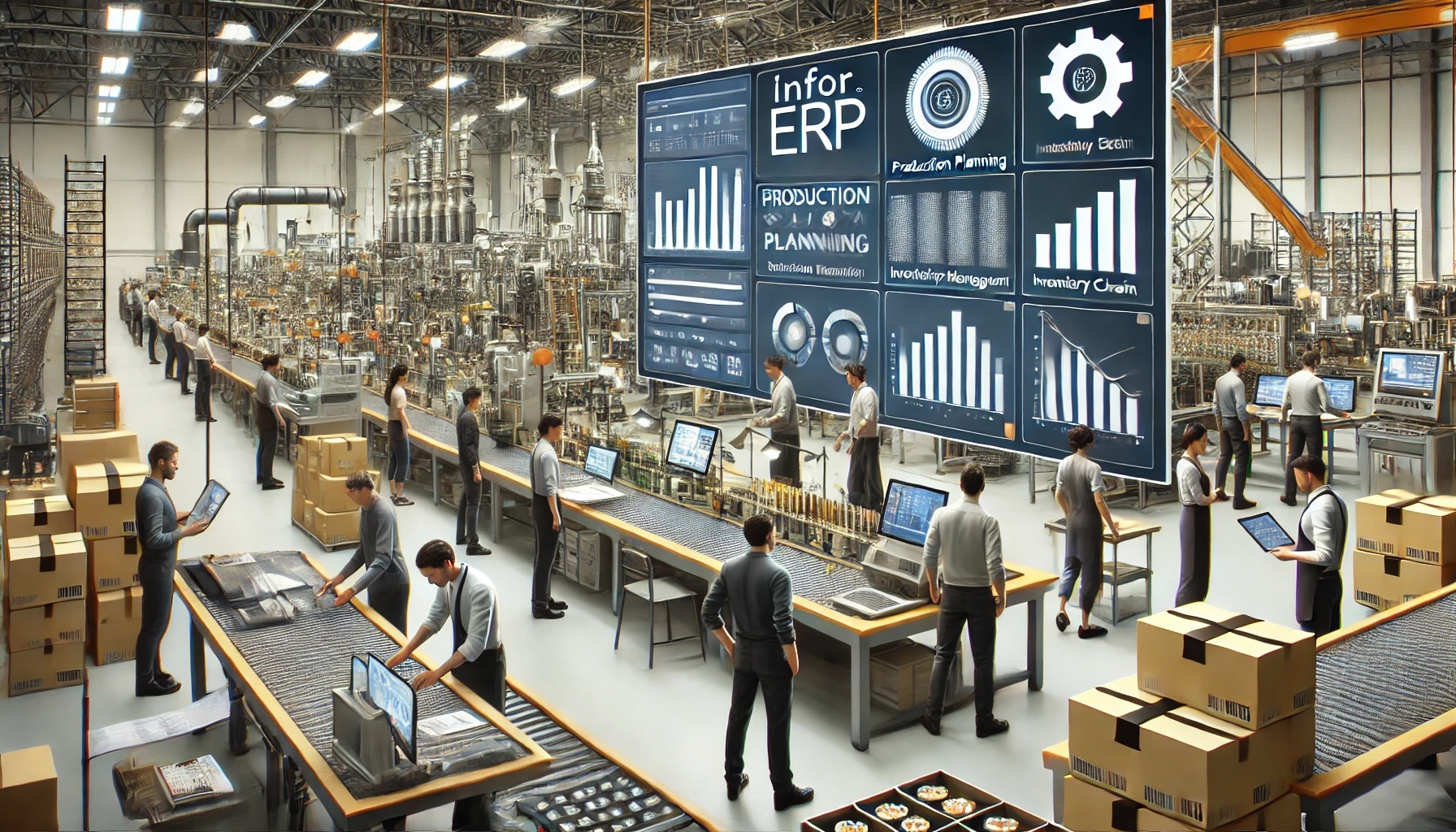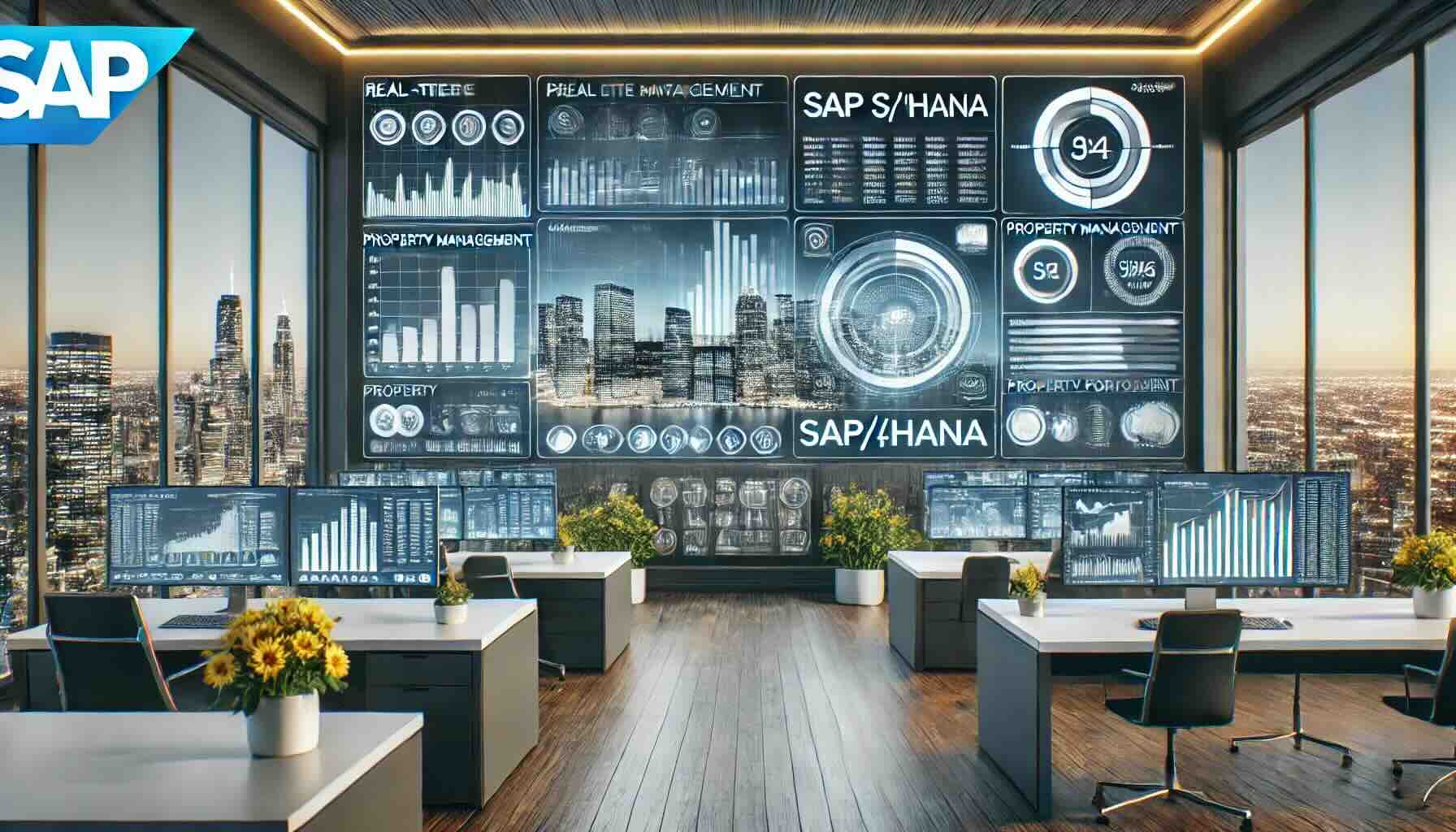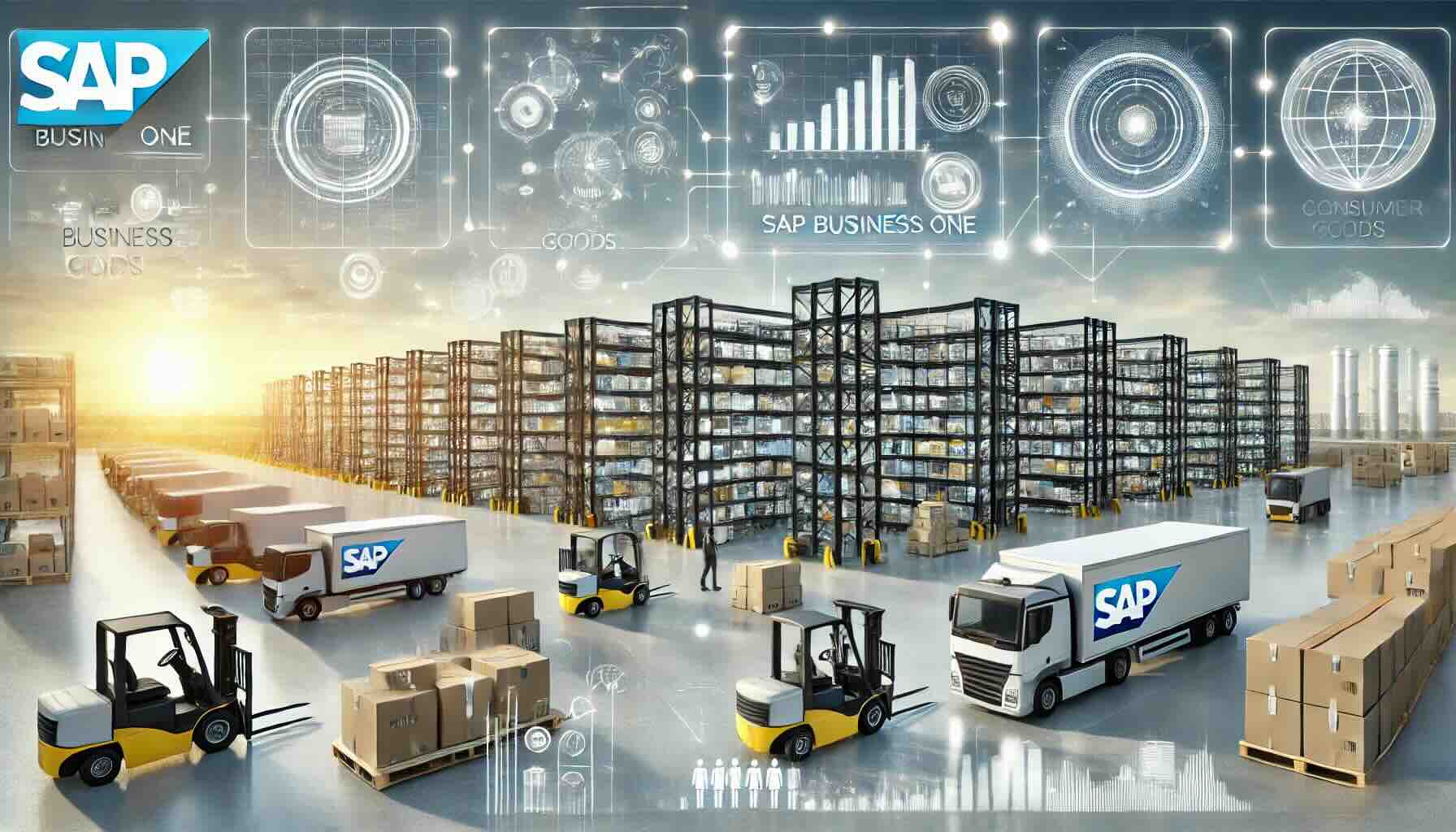Compare ERP for Small Manufacturing Businesses

For small manufacturing businesses (SMBs) to be their most competitive, selecting the right ERP system is essential for streamlining operations, enhancing efficiency and driving growth. The importance of a comprehensive ERP system cannot be overstated, as it integrates various functions such as production, sales, purchasing and finance into a single, cohesive environment. It’s crucial therefore that SMBs are careful to select a system that aligns with their unique requirements.
SMBs face distinct challenges, such as limited resources, the need for agile production processes and cost-effective solutions. With a whole host of systems available, let’s compare ERP for small manufacturing businesses, diving deeper into some of the most significant offers from key vendors on the market.
Acumatica
Acumatica offers a cloud-based platform, bringing flexibility and scalability, both of which are crucial for SMBs looking to grow. With a versatile, comprehensive suite, it includes robust inventory management, production planning and CRM functionalities. This being said, SMBs should weigh its subscription-based pricing model against their budget constraints. Click this link to find out more about Acumatica for small manufacturing.
Aptean
Aptean provides SMBs with industry-specific solutions designed to streamline operations. It focuses on automating processes and providing real-time data that can support SMBs to make informed decisions. However, the customization required to integrate these solutions may create challenges. Click this link to find out more about Aptean for small manufacturing.
Axelor
An open-source ERP solution, Axelor provides a high level of customization and flexibility at much lower costs. This platform is ideal for manufacturers seeking a tailored solution without having to make significant investment. However, the reliance on internal or third-party technical expertise for implementation and maintenance could create challenges. Click this link to find out more about Axelor for small manufacturing.
Epicor
Bringing a comprehensive ERP solution with a strong emphasis on manufacturing operations, Epicor includes benefits such as advanced planning and scheduling, material requirement planning and quality management. While Epicor’s depth of manufacturing functionalities is a major advantage, SMBs might find the system’s complexity and cost a little daunting. Click this think to find out more about Epicor for small manufacturing.
Global Shop Solutions
Providing a one-stop ERP solution designed to simplify manufacturing, Global Shop strengths are in shop floor management, scheduling and providing detailed costing capabilities. However, SMBs might find its broad scope is more than they need, potentially over-complicating the user experience. Click this link to find out more about Global Shop Solutions for small manufacturing.
DelmiaWorks (formerly IQMS)
Specializing in manufacturing ERP, DelmiaWorks offers a suite designed to enhance operational efficiency and reduce waste, standing out particularly for its real-time monitoring of the manufacturing floor and comprehensive quality management system. However, the transition to DelmiaWorks and integration with existing systems could pose challenges for some SMBs. Click this link to find out more about DelmiaWorks for small manufacturing.
Microsoft Dynamics 365
Microsoft Dynamics 365 brings together CRM and ERP capabilities, offering flexibility through modular applications. Its integration with other Microsoft products is a significant advantage for businesses already in the Microsoft ecosystem. Nonetheless, it’s important to note that the cost of additional modules and customization can add up. Click this link to find out more about Microsoft Dynamics 365 for small manufacturing.
Oracle Netsuite
Well-regarded for its cloud-based ERP solutions, Oracle Netsuite offers real-time visibility across the business. Its scalability and comprehensive suite, including financials, CRM and ecommerce, make it an attractive option for growing manufacturers. However, its pricing model may be a consideration for smaller SMBs. Click this link to find out more about Oracle Netsuite for small manufacturing.
Plex
Plex focuses on the manufacturing sector, delivering a cloud-based ERP solution that excels in production planning, quality management and supply chain management. While Plex’s manufacturing-centric approach is beneficial, its cost and complexity may not suit all SMBs. Click this link to find out more about Plex for small manufacturing.
QAD
Offering an adaptive ERP solution, QAD is designed for global manufacturers, with a strong focus on automotive, life sciences and industrial sectors. Its capability to support international operations is certainly a strength, but equally may be more than what the average SMB requires. Click this link to find out more about QAD for small manufacturing.
Sage
Sage provides a range of ERP solutions suitable for small to medium-sized manufacturers. While its user-friendly interface and customizable features are positives, the costs associated with scaling and adding modules should also be considered. Click this link to find out more about Sage for small manufacturing.
SAP Business One
Designed for small to mid-sized businesses, SAP Business One offers a comprehensive solution that covers all core business functions. While its global and extensive integration capabilities are certainly advantages, the system’s complexity and need for customization could create hurdles for some SMBs. Click this link to find out more about SAP Business One for small manufacturing.
Syspro
Syspro offers a specialized manufacturing ERP that focuses on leveraging technology to improve operational efficiency. With strengths in inventory management and production planning, it’s a solid choice for manufacturers. Be mindful, however, that the initial learning curve and implementation process will require careful planning. Click this link to find out more about Syspro for small manufacturing.
As SMBs look for the right ERP solution, there is various criteria they should consider, including scalability, cost, access to industry-specific functions and ease of integration. With a wealth of options available, we’re confident that each SMB can pair themselves with an ERP system that both meets their short-term needs and supports their longer-term strategies.
To compare these ERP solutions and many more, you can use our new AI-powered Compare ERP tool. It’s free to use and you get a guaranteed discount on your first year’s licence fees with a referral from Compare ERP.
